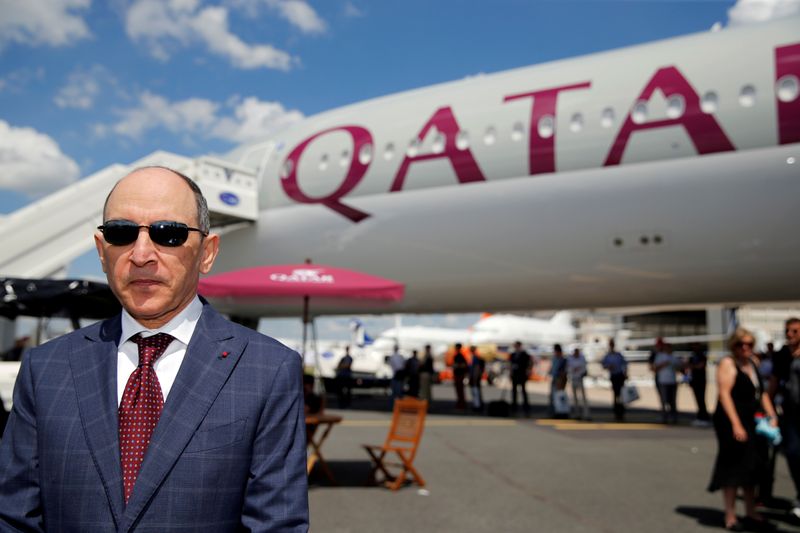DUBAI (Reuters) – Global travel demand will take years to recover from the coronavirus pandemic and many business travellers may never return to the skies, the head of Qatar Airways said on Monday.
State-owned Qatar Airways has been one of few airlines to continue regular, scheduled flights during the global lockdowns to contain the novel coronavirus, maintaining services to around 30 destinations.
It said this month it would gradually resume flights to some of the 165 destinations it served before the outbreak, aiming to fly to 80 destinations by the end of June.
“I am sure there will be demand,” Akbar al-Baker told Reuters by phone, forecasting the airline would be able to fill between 50% and 60% of seats.
“There are still a lot of people stranded around the world (and) people who want to visit their loved ones.”
Airlines are considering how to safely operate services and give passengers confidence to fly ahead of restrictions easing.
Some have discussed leaving middle seats empty on flights to enable social distancing, while some are requiring passengers to wear masks on board.
Qatar Airways will encourage passengers to keep a safe distance from each other where possible while on board, Baker said.
But the CEO, who heads one of the Middle East’s largest carriers, added he would be “very surprised” if travel demand recovered before 2023/2024.
Rival Emirates has said a recovery could be 18 months to three-years away.
Baker also said many business travellers may never return, having become accustomed to working remotely, while job losses and business closures would also have an impact.
To manage a slow recovery, Qatar Airways will reduce its fleet by a quarter, with some aircraft to remain grounded and others returned to lessors, and reduce flights.
The airline had a fleet of 203 Airbus <AIR.PA> and Boeing <BA.N> wide and narrow-body jets as of March 31, 2019, when it last disclosed its financial results.
Qatar Airways also said it would give away 100,000 return economy class tickets to frontline healthcare workers around the world as a thank you for their efforts in fighting the virus.
(Reporting by Alexander Cornwell; Editing by David Goodman and Mark POtter)




















